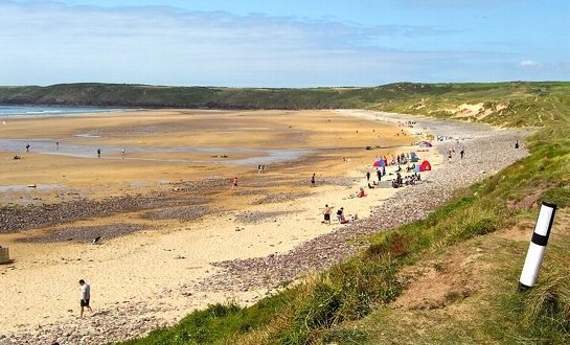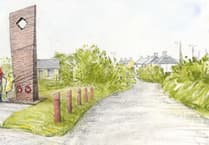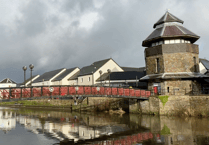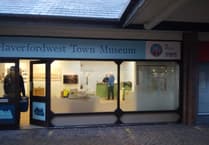Controversial new enforcement signs to try and combat unauthorised overnight camping at Freshwater West car parks were narrowly approved this week by members of Pembrokeshire Coast National Park Authority’s development management committee.
The planning application put forward by the National Trust relates to three car parking sites that serve the popular beach, where currently overnight parking is not allowed.
The National Trust who own the car parks say they have been struggling to enforce the bylaws which currently apply there, with the ranger team tasked with carrying out early morning and daily patrols during the summer informing those staying overnight at the sites, that they are in fact breaking the Trust’s bylaws.
Previous signage in all three car parks had been vandalised on a yearly basis, and rangers have had to regularly clean up the mess that has been left behind by overnight campers.
The National Trust has been in discussion with the relevant bodies over the last several months to provide a solution to the current unauthorised overnight camping issues at the sites in question to ensure the landscape can be maintained in a favourable condition.
The meeting heard that the main purpose of the new signage was an attempt to reduce overnight camping at the sites, which in itself created a far more ‘significant visual amenity impact’ than the proposed signage.
A report from PCNPA case planning officer Andrew Richards that went before the committee stated that over 500 letters of concern/objection had been received relating to the following concerns: proliferation of signage; visual impact; scale and design of proposed signage; highway safety.
There had also been an online petition objecting to the proposals which had gathered over 8,000 signatures.
The authority heard from a local resident who spoke out against the proposal, stating that the signs would bring ‘hostility and emotion’ to beach users.
However, speaking for the proposal Jonathan Hughes general manager for the National Trust of Pembrokeshire said that the proposals were necessary as his team had been met with ‘hostility’ when trying to move people on.
He added that the Trust has been reluctant to previously enforce the bylaws as they didn’t want to give people a criminal record just for parking overnight.
Committee member Clr. Di Clements asked “why there was a need for more signs” to which Mr. Hughes replied that “people hadn’t seen them.”
Her fellow committee member Clr. Tony Wilcox said that there was only a small amount of vehicles that had been causing the main problem.
Concerns were also raised with how the trial could be monitored with Mr. Hughes suggesting that the Trust was looking at a district enforcement company to monitor and enforce the changes.
It was also argued that the new enforcement had not been thought-out and there was a lack of evidence.
When put to the vote, development management committee members gave the go ahead for 10 signs to be placed across the three car parks under a 12 month temporary advertisement consent - subject to amendments, approving the application by nine votes to six.
The amendments that were passed related to the colour and height of the proposed signs, which will be put up in due course.




